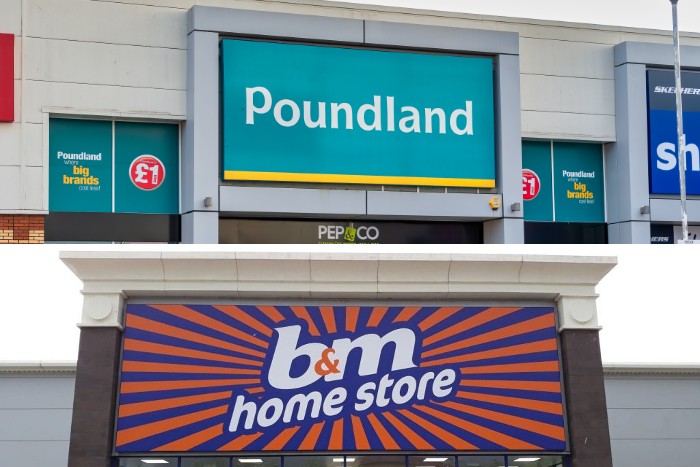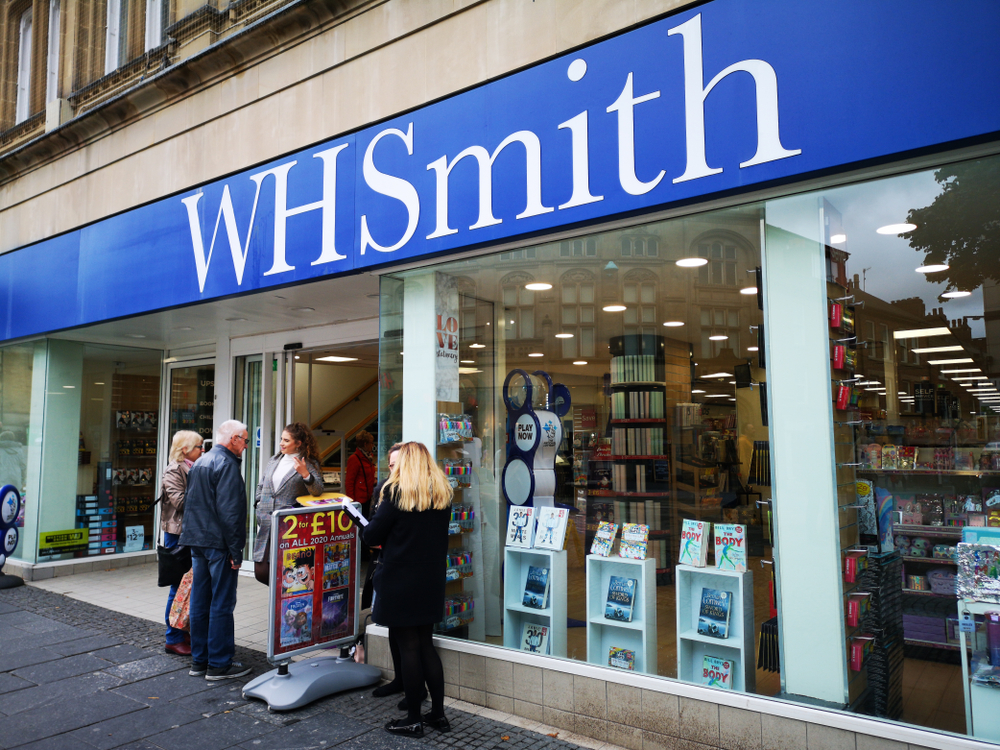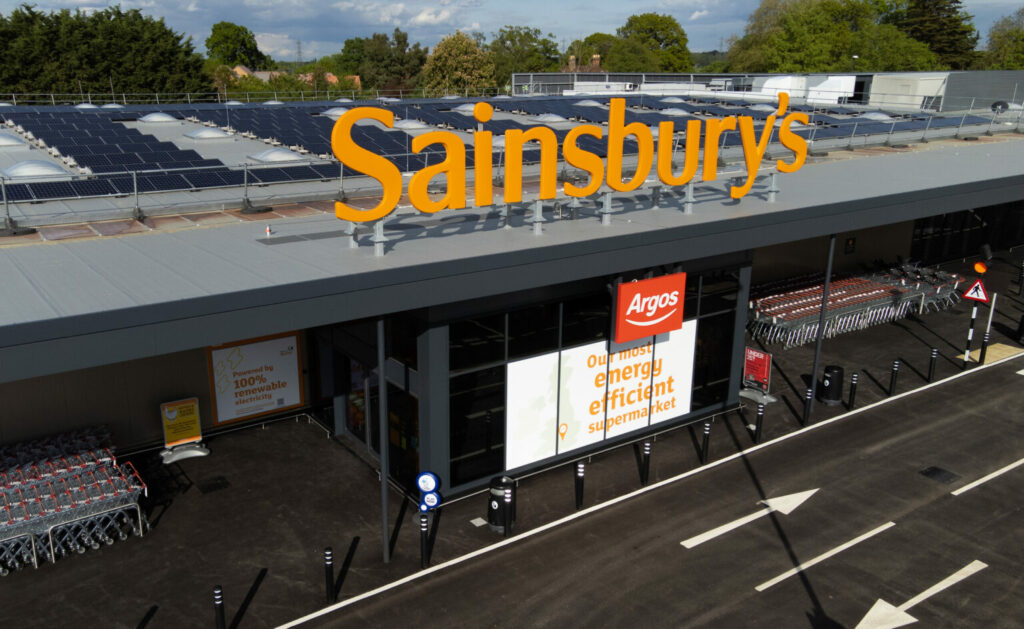Discounters like Poundland, The Range and B&M have long been used by shoppers on a budget to top-up their weekly grocery shop with multi-pack of crisps or cut-price confectionery.
However, over the past few years discount retailers have stepped up their grocery game, which has led to many shoppers not just relying on them for a top-up but to carry out the bulk of their grocery shop.
Just yesterday Poundland revealed plans to expand its chilled and frozen food offer to around 300 more stores. That’s on top of the more than 350 stores that already have this offer.

The retailer even added fresh meat and fish into stores for the first time during the summer, partnering with supplier DTS to launch ribs, steaks, bacon, sausages, mince, salmon and cod fillets.
It already sells fresh fruit and vegetables in some stores.
A Poundland spokesperson tells Retail Gazette: “Poundland’s always been a destination for top-up shoppers for ambient grocery who understand the amazing value we offer – now we’re expanding into new categories, we can offer more of what they buy week-in, week out.
“That is already helping us become more of a destination for our shoppers and will certainly help us grow.”
Meanwhile, it’s stores seem to be getting bigger and more supermarket-like.
Take Poundland’s mega store in Nottingham, which chief operating officer Austin Cooke admitted was dangerously close to being a supermarket when it opened in February this year.
The 15,000 sq ft store includes hot food and drinks, a bakery, a vast chilled and frozen section, and even booze. It also houses a large clothing and home offer via Pep&Co and an electricals section.
And it is not an isolated store. Poundland has vowed to open more bigger format stores of this ilk going forward.
Piling on the pressure
Poundland is not alone. Discounters across the board are becoming an increasing threat to the grocers.
B&M launched a frozen food range in 2018 to supplement its already strong food offer of tinned and grocery goods.
However, the biggest sign of its ambitions in food came in 2017 when it bought Heron Foods.
Fellow discounter The Range – which was best known for selling home, garden and leisure products – began selling groceries such as frozen foods, dairy products, meat, tinned goods, drinks, alcohol and toiletries in 2020.

During that same year, The Range teamed up with frozen food retailer Iceland to sell its products in over 85 of The Range stores.
Meanwhile, Home Bargains’ large stores now stock an array of chilled food, frozen food and rows of cupboard staples. There’s even a bakery in its Byker store in Newcastle.
KPMG’s head of UK retail Paul Martin says: “Discounters are the fastest growing part of the retail sector. The main reason is the cost-of-living crisis.”
“The disposable wallet of consumers has shrunk. This means they’re likely buying less furniture, less fashionwear, and so discounters are expanding their food offering.”
A Poundland spokesperson tells Retail Gazette: “Our stores with chilled and frozen food are outperforming stores without it.”
It is increasingly adding new grocery categories into stores and is currently trialling beer, wines and spirits in a number of stores and it’s “an important part” of its growth plans.
A flight to the discounters
The discounters are giving shoppers a far greater choice of food and grocery products and, as the cost-of-living crisis rages on, they are snapping them up.
Research firm NielsenIQ revealed during the summer that one in four households were buying branded products at value retailers such as Poundland, B&M, Poundstretcher and Home Bargains as they kept an eye on the overall cost of their shopping basket.
“Fast forward 10 years and we’ll be talking about the Big Eight rather than Big Four”
Poundland boss Barry Williams told the BBC: “I think you’re seeing a shift, a flight to value, if you like, from the traditional grocers, the major multiples, into the discount channel where we operate.
“What we’re definitely seeing is customers prioritising essential areas of spend. It’s more around fast moving consumer goods, it’s more around food.”
James Delves, head of PR at the Chartered Institute of Marketing sees this shift outlasting the cost-of-living crisis.
“Fast forward 10 years and we may be talking about the Big Eight rather than the Big Four,” he says.
“With external pressures looking likely to continue for the foreseeable future, bigger supermarkets will be nervously checking their shoulders.”

One retail expert tells Retail Gazette that Poundland has biggest opportunity out of all the discounters because it has been cementing its place in the grocery space for a while now.
“Poundland has also been experimenting with fresh produce, so they already have some of the infrastructure in place,” he says.
Food challenge
The discounters may be making headway in food, however, KPMG’s Martin says this transition into grocery is far from easy.
“Building a fresh or a frozen supply chain is really complicated,” he says.
“Discounters will be operating on a very small scale so when they go to Unilever, they are buying a comparatively small scale.”
Furthermore, he explains that retailers need a different supply chain and store operations to deal with fresh products.
“Produce is very complicated because you have to think about shelf lifetime. Things go off, it increases your waste.
“If you don’t get that right, you start throwing things away. You might be throwing away your profit at the end of every day,” he warns.
Deloitte head of retail Oliver Vernon-Harcourt agrees that logistics and waste are big factors that could impact how far the discounters can take their fresh food offer.
The grocers fight back
Competition is stiffer than ever for the big grocers. In fact, GlobalData said last year it expects the major supermarkets to lose out on a further 1.1% of the total market (£1.9 billion) by 2024.
To fight quell the shift to the value players, the big supermarkets are focusing on keeping prices low and ensuring customers know it.
Asda went on the offensive earlier this year when it launched a price match scheme that took aim at Home Bargains.

The price match covers more than 100 Home Bargains products on items such as Sure deodorant and Huggies nappies, and highlights the threat that discounters pose to grocers.
Delves believes that the onus falls on the UK’s well-established supermarket groups to re-win the hearts and minds of consumers ahead of what may be a difficult festive period for consumers.
He argues that supermarkets have the advantage of a pre-existing relationship with customers, who may have shopped loyally for many years.
He uses Tesco’s “significant investment” in its Clubcard scheme as an example of how a grocer can fight back.
The UK’s biggest grocer has ploughed much of its price investment in to offering Clubcard customers exclusive discounts across many products.
“In doing so, it has ensured that it has in-depth customer data insights to understand its target audience at a crucial time, which discounters will envy,” says Delves.
Martin agrees and says supermarkets can use customer insights and loyalty as an opportunity because many discounters don’t offer that.
There may be levers that the big supermarket groups can pull but the threat of the value retailers remains strong.
As the cost-of-living crisis continues to hit shoppers’ purses, value retailers will no doubt woo more cost-conscious customers to try their burgeoning food offer.
The big question is how many customers will continue to shop there when the current economic storm clears.
The last financial crisis catalysed the rise of Aldi and Lidl, perhaps this one could create an even wider group of grocery players.


















